Indigenous Governance Database
IGD Database Search
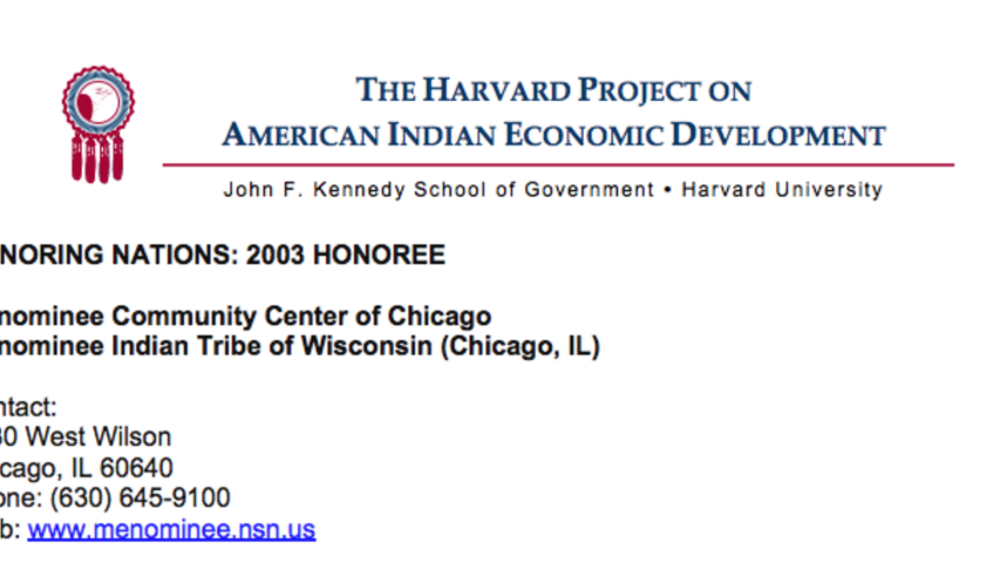
Menominee Community Center of Chicago
A unique partnership between an urban Indian center and a tribal government, the tribally funded Community Center serves nearly 500 Menominee tribal citizens living in the greater Chicago area. The Center and the tribal government work together to ensure that all of its citizens are actively…
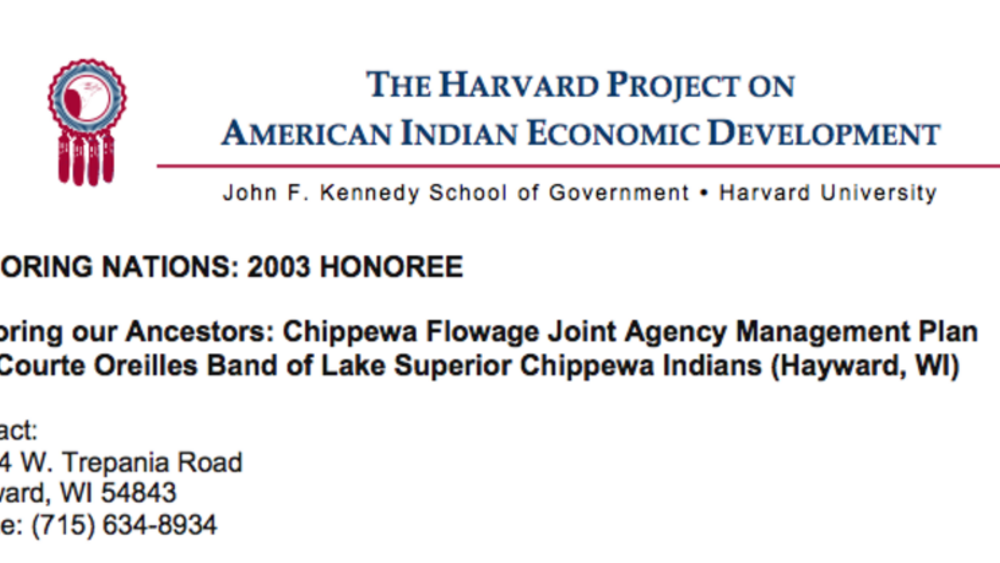
The Chippewa Flowage Joint Agency Management Plan
The Joint Agency Management Plan brings together three governments — the Lac Courte Oreilles Band, the State of Wisconsin, and the US Department of Agriculture Forest Service — to co-manage the Chippewa Flowage, a 15,300-acre reservoir created in 1923 that inundated a tribal village. Taking into…
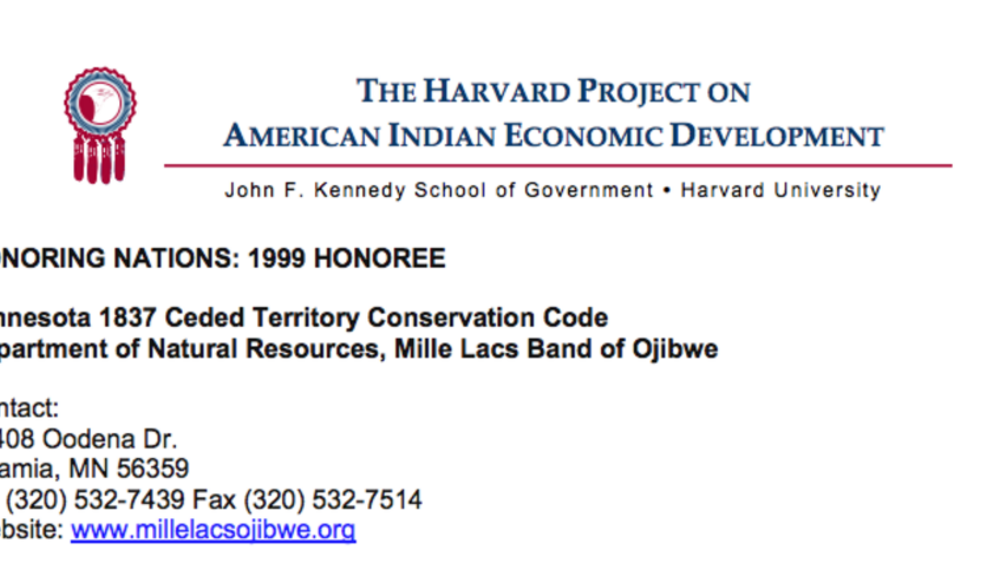
Minnesota 1837 Ceded Territory Conservation Code (Mille Lacs)
In 1997, the Band successfully developed a conservation code that enables the Tribe to exercise its treaty rights to hunt, fish, and gather. The Code sets out detailed hunting and fishing regulations for Band members that protect the natural resources while allowing for the continuation of…
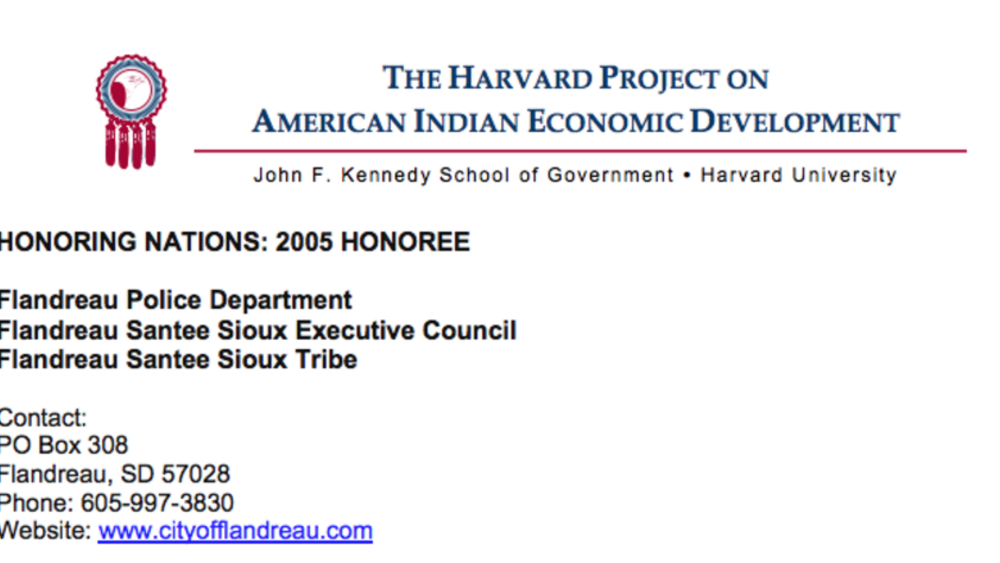
Flandreau Police Department
The Flandreau Santee Sioux Tribe’s lands are situated within Moody County and the City of Flandreau, South Dakota. This location presents the Nation with a particular challenge: How do you provide adequate and culturally sensitive public safety and law enforcement for your citizens in mixed…
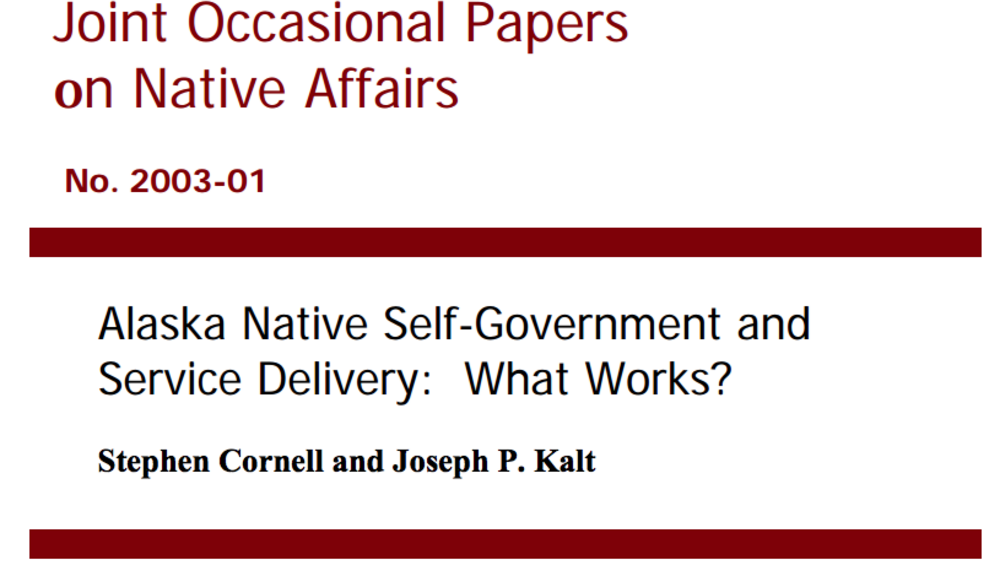
Alaska Native Self-Government and Service Delivery: What Works?
The Native peoples of Alaska have governed themselves for far longer than either the State of Alaska or the United States. Indeed, their rights of self-government are properly defended as basic human rights that are not unilaterally extinguishable by these other governments. Yet, today an…
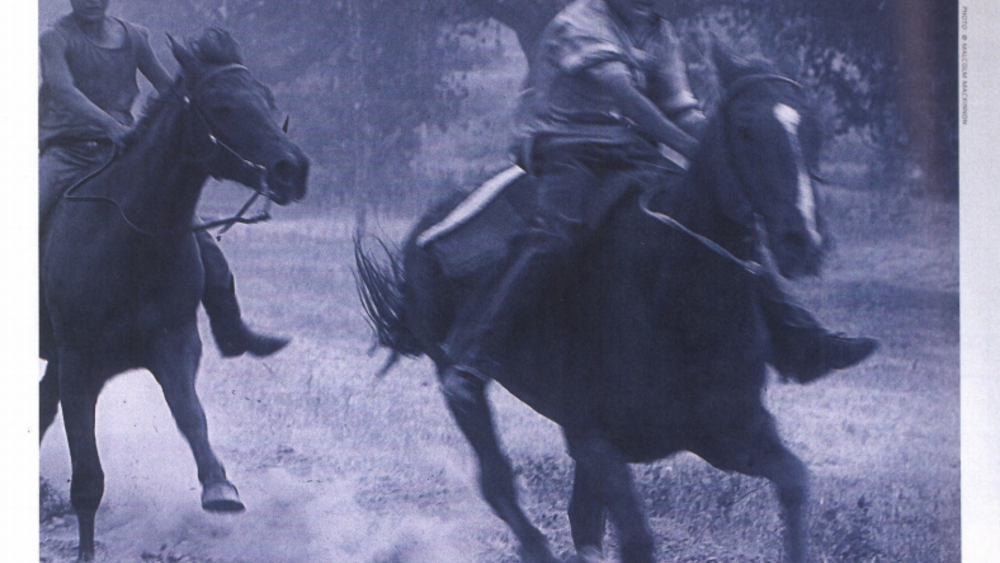
Pine Ridge Renaissance: From the Ground Up, Sovereignty Can Be Real
This article chronicles the groundswell of small business development taking place on the Pine Ridge reservation in South Dakota, home to the Oglala Sioux Tribe. It examines the critical importance that citizen entrepreneurs can and do play in developing sustainable economies in Indian Country.
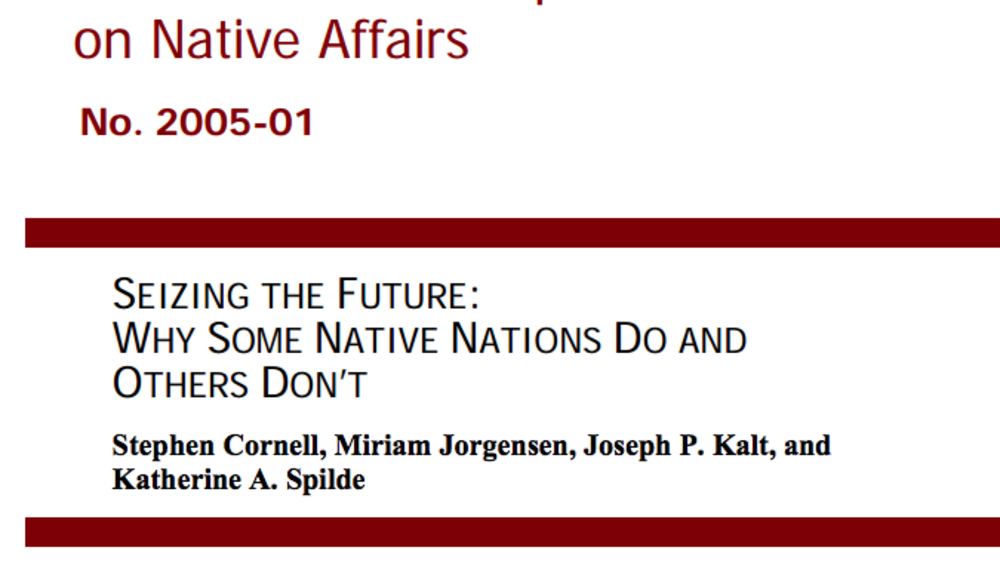
Seizing the Future: Why Some Native Nations Do and Others Don't
Both research and the experience among Native nations daily drive home the conclusion that the so-called "nation-building" approach holds the keys to self-determined social, political, and economic development for indigenous communities. This approach emphasizes the critical role of asserting…
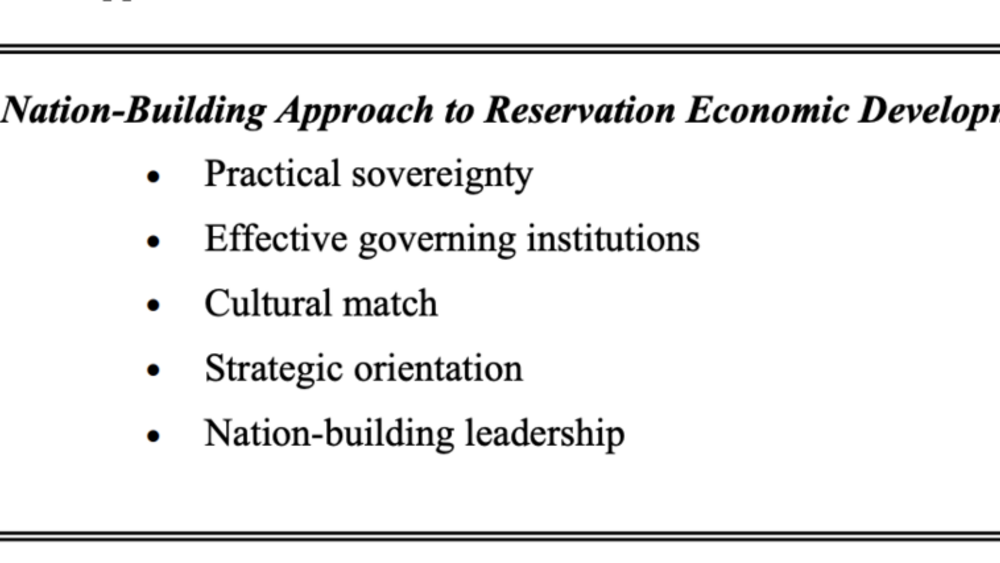
Two Approaches to Economic Development on American Indian Reservations: One Works, the Other Doesn't
As much of the world knows, American Indian nations are poor. What much of the world doesn't know is that in the last quarter century, a number of these nations have broken away from the prevailing pattern of poverty. They have moved aggressively to take control of their futures and rebuild their…
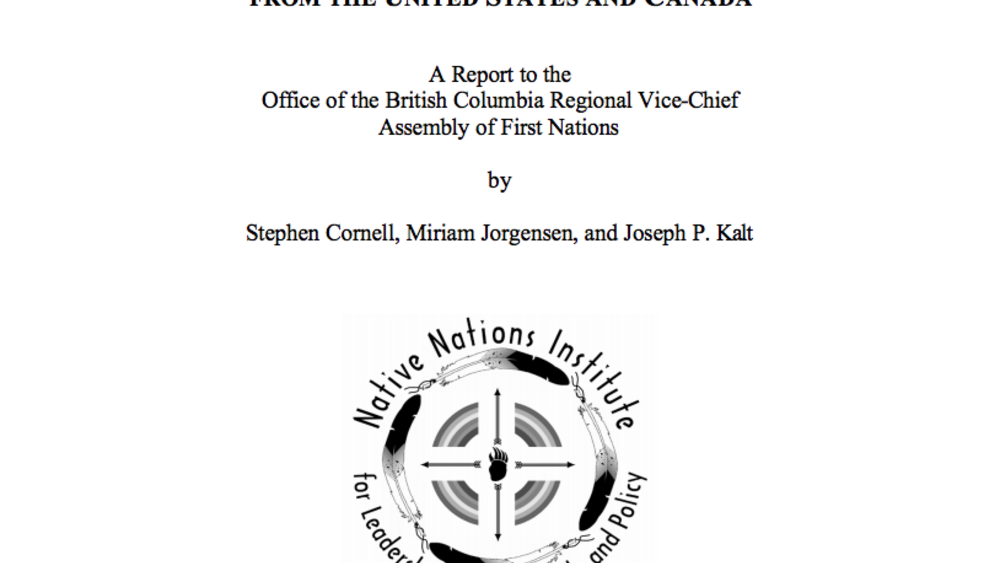
The First Nations Governance Act: Implications of Research Findings from the United States and Canada
In the spring of 2002, the Office of the British Columbia Regional Vice-Chief of the Assembly of First Nations (AFN) asked the Native Nations Institute for Leadership, Management, and Policy at The University of Arizona to provide that office with an analysis of the First Nations…
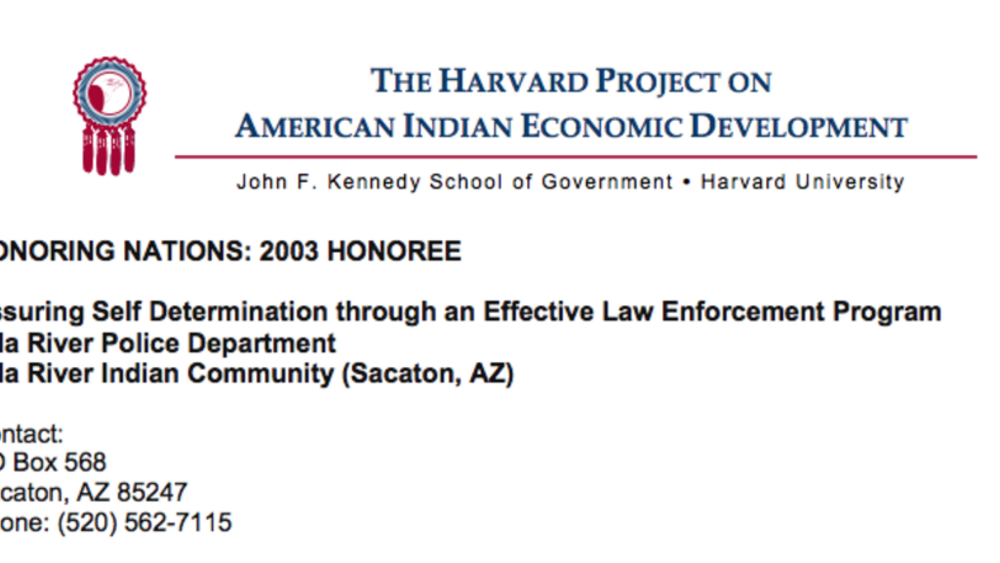
Gila River Law Enforcement Program
Serving a population of 17,000, the 92-employee Gila River Police Department operates a multifaceted law enforcement program that includes community-based policing, neighborhood block watch programs, a citizen’s police academy, and bike patrols. Since assuming control over law enforcement in 1998,…
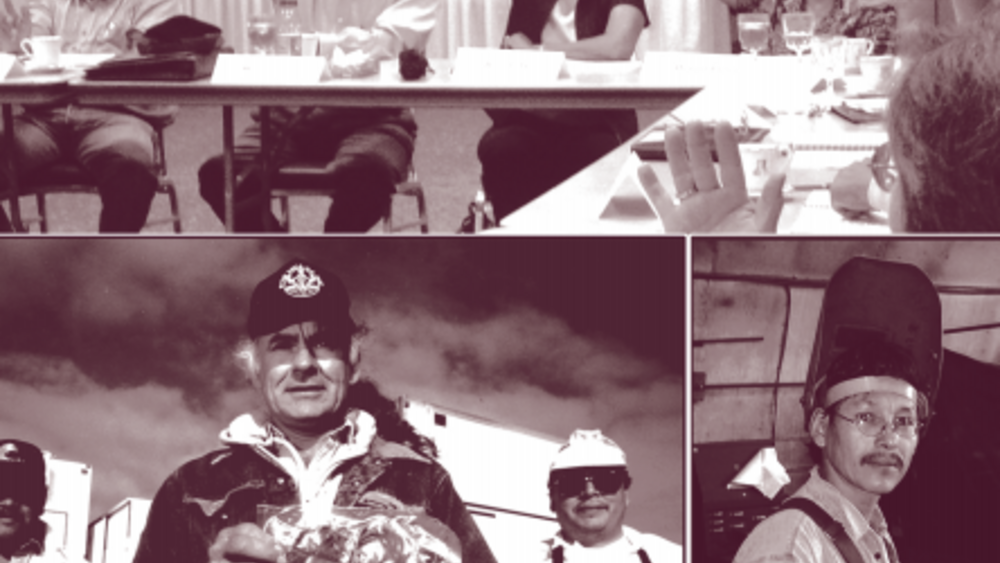
What Makes First Nations Enterprises Successful? Lessons from the Harvard Project
Some enterprises owned and operated by Native nations do well, and others don't. Of course this is true of all businesses--some succeed and others fail--and there are numerous reasons why. After all, building a successful business is a complex and challenging task. But in these and many other cases…
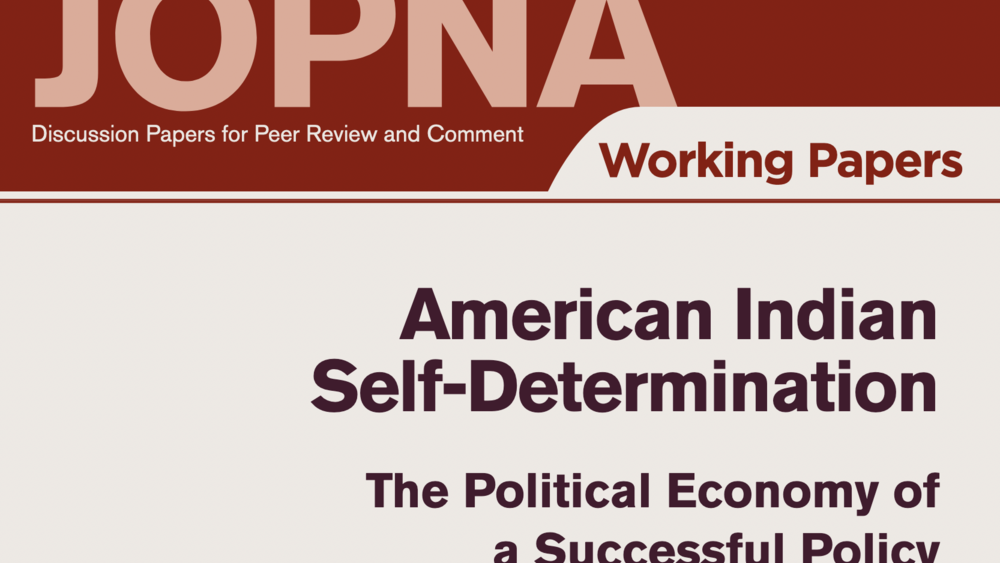
American Indian Self-Determination: The Political Economy of a Successful Policy
Examines the changing level of congressional support for the federal American Indian policy aimed at promoting self-determination, through self-governance of federally recognized tribes.
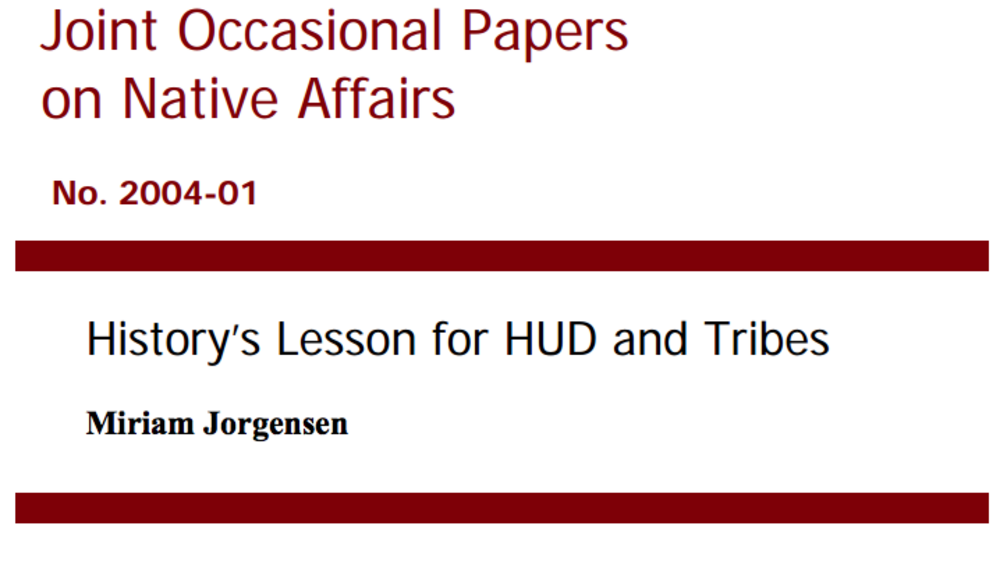
History's Lesson for HUD and Tribes
In 1998, Indian housing entered a new era. HUD ended its practice of channeling funds for Washington-designed Indian housing programs to HUD-sponsored local Indian Housing Authorities (IHAs) and converted programmatic funds into block grants to tribal housing agencies, which were allowed to design…
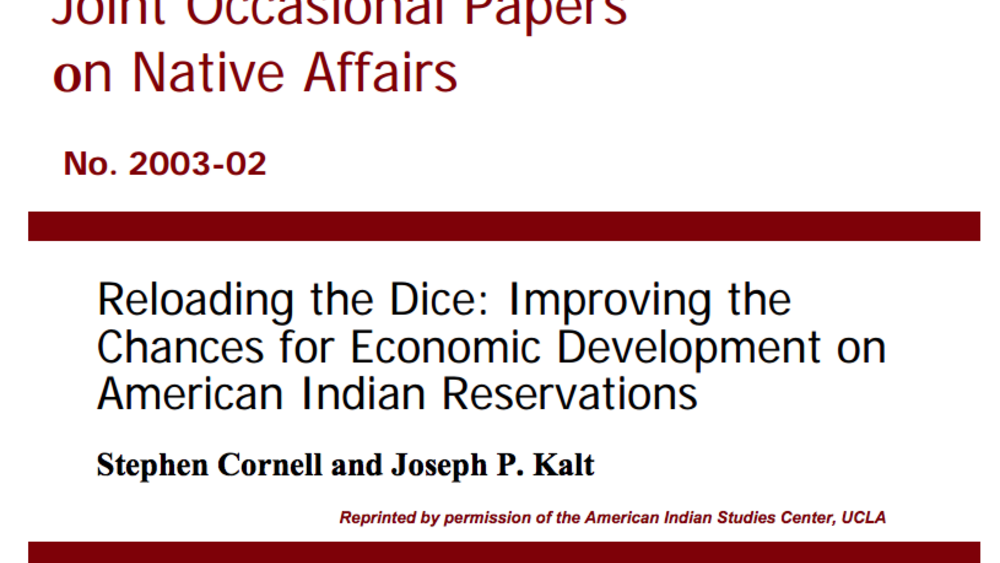
Reloading the Dice: Improving the Chances for Economic Development on American Indian Reservations
The experiences of a wide array of societies around the world amply demonstrate that achieving sustained, self-determined economic development is a complex and difficult task. Certainly this is the case on the Indian reservations of the United States, where numerous obstacles face tribal leaders,…
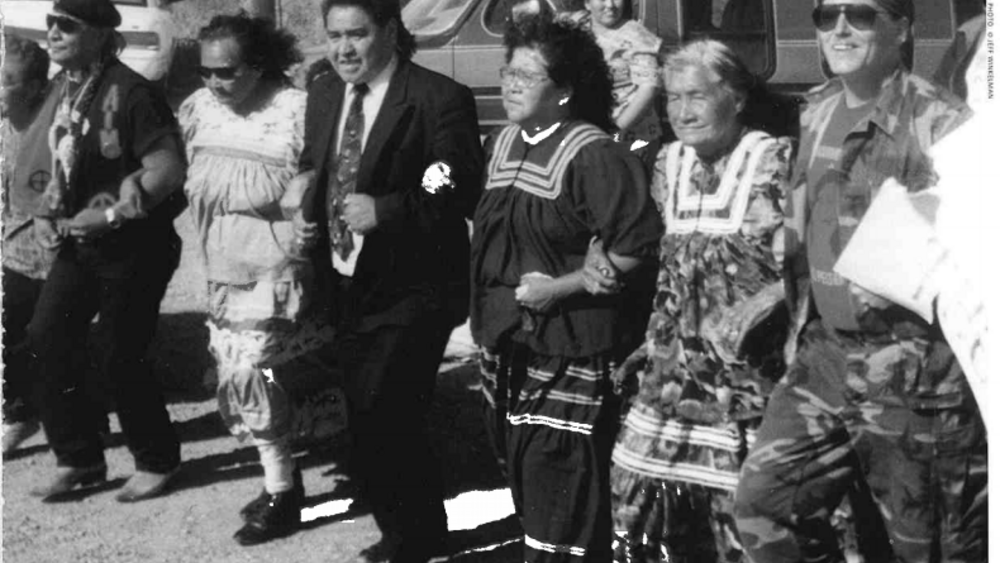
Broken Government: Constitutional Inadequacy Spawns Conflict at San Carlos
This article, published in 1999, examined the governmental conflict taking place at the San Carlos Apache Tribe. It explored the historical constitutional roots of the conflict, specifically the ineffectiveness and culturally inappropriate Indian Reorganization constitution and system of government…
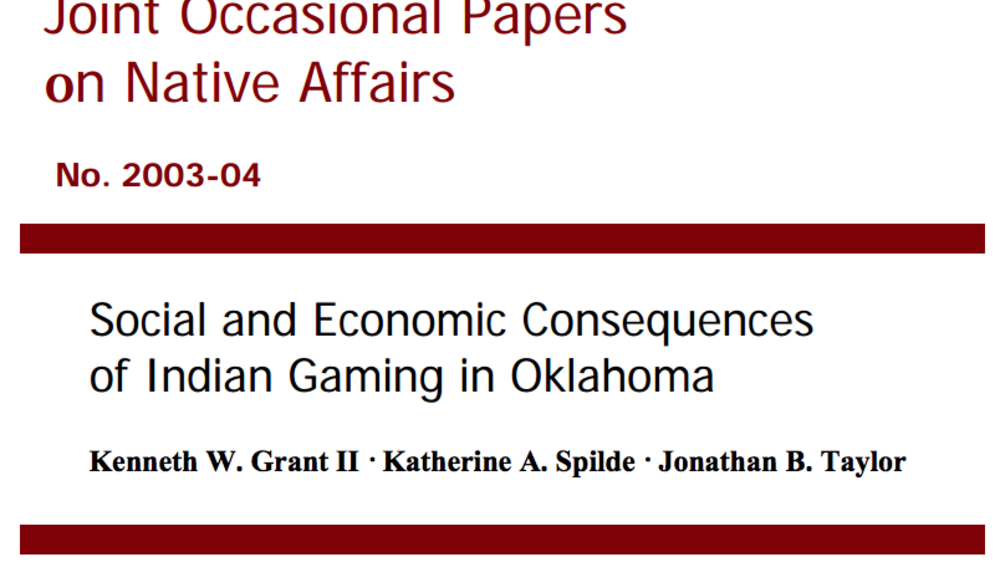
Social and Economic Consequences of Indian Gaming in Oklahoma
Much has been written in the mainstream press about Indian gaming and its impact on Indian and non-Indian communities. The debate, however, tends to be focused on Class III or “casino-style” gaming. The effects of Class II gaming have largely been overlooked by the press and, unfortunately, by the…
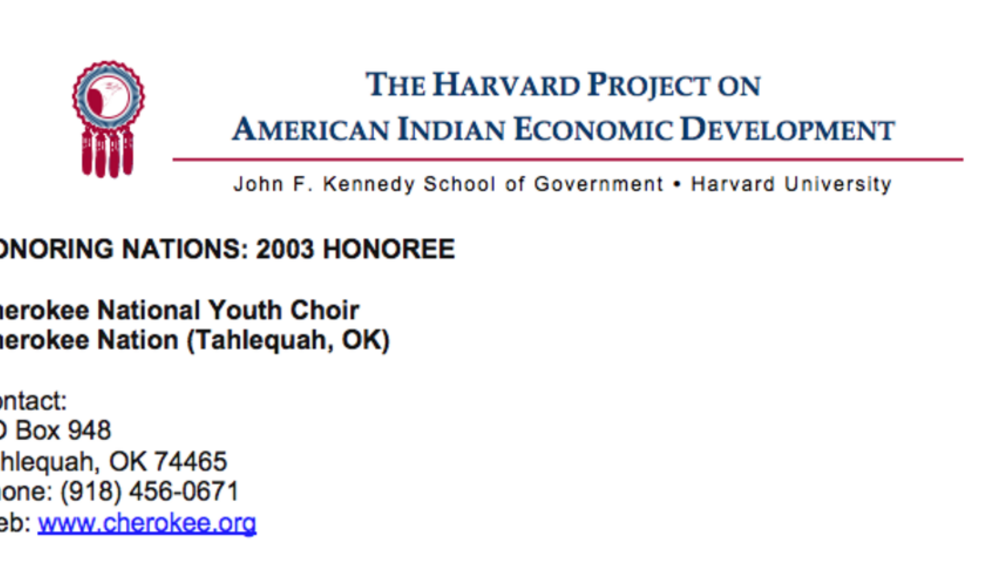
Cherokee National Youth Choir
The Youth Choir presents an innovative approach to promoting and encouraging the use of the endangered Cherokee language among its youth while also instilling Cherokee cultural pride. The award-winning choir — comprised of 40 young Cherokee ambassadors — has performed in venues across the US,…
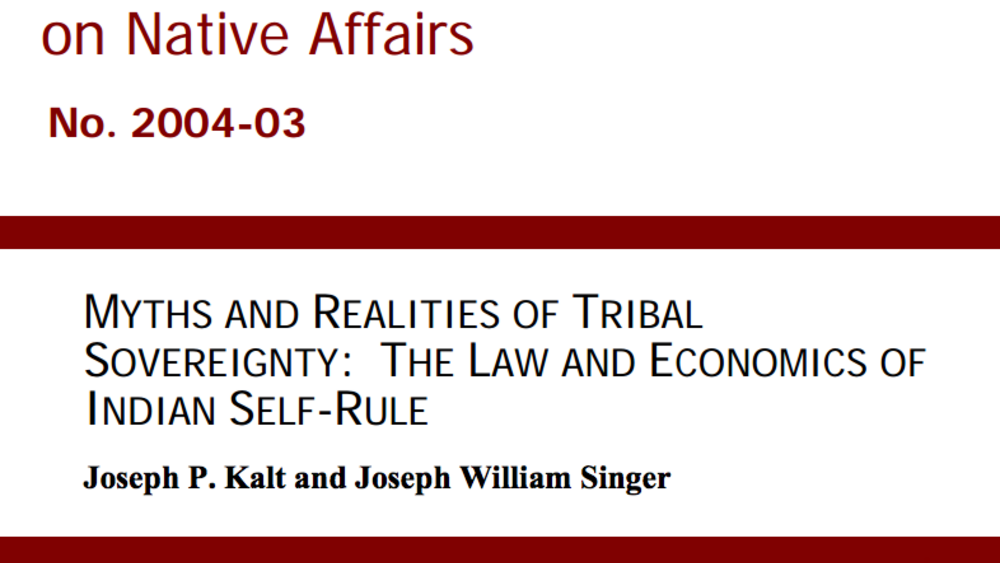
Myths and Realities of Tribal Sovereignty: The Law and Economics of Indian Self-Rule
The last three decades have witnessed a remarkable resurgence of the American Indian nations in the United States. The foundation of this resurgence has been the exercise of self-government (sovereignty) by the more than 560 federally- recognized tribes in the U.S. In this study, we explore legal…
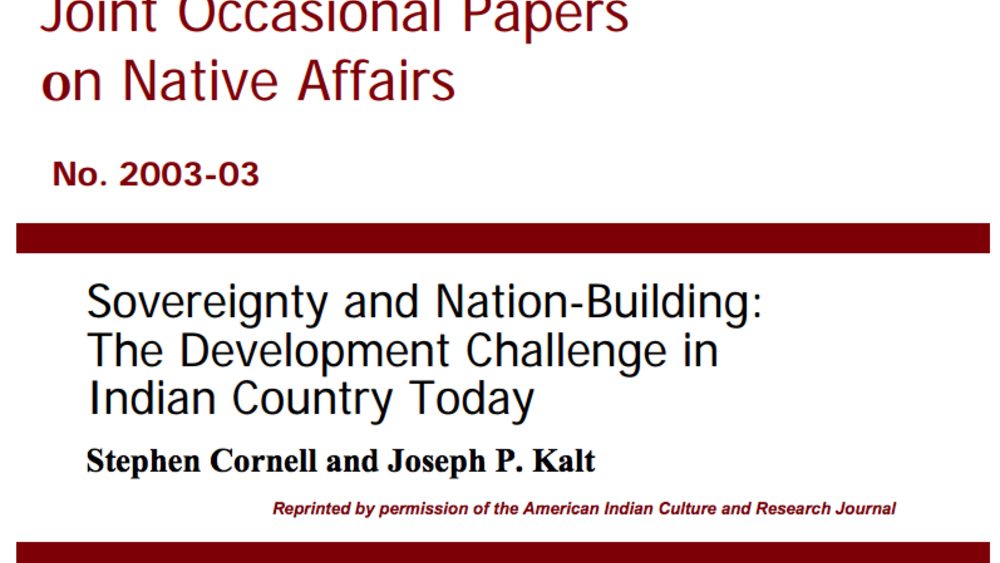
Sovereignty and Nation-Building: The Development Challenge in Indian Country Today
The Indian nations of the United States face a rare opportunity. This is not the occasional business opportunity of reservation legend, when some eager investor would arrive at tribal offices with a proposal guaranteed to produce millions of dollars for the tribe--although such investors still…

Native Nations and Arizona's Economy
American Indians are disproportionately represented among the low-income residents of the state of Arizona. Across the United States, including in Arizona, reservation economies are growing at a fast pace but low starting points for growth mean that it will take years for American…
Pagination
- First page
- …
- 28
- 29
- 30
- …
- Last page
